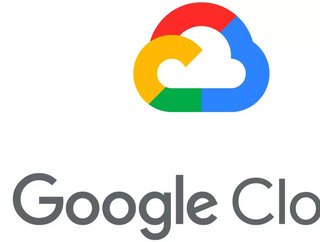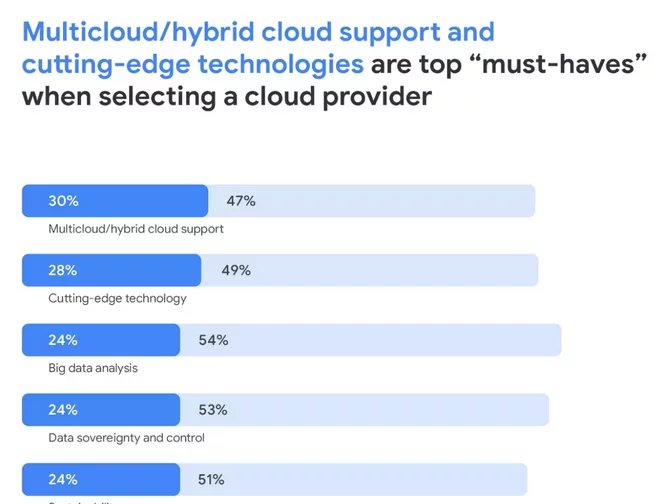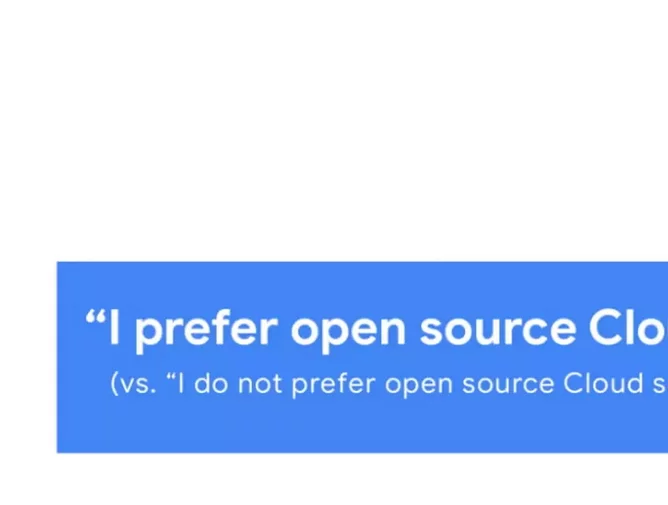Google x IDG: Cloud Capabilities for Sustained Innovation

As more organisations embrace the concept of digital transformation and start their journey towards digitalisation, leaders realise that cloud computing is one of the most prevalent developments of the 21st century. Providers have argued that cloud computing technology should now be classed as a critical feature of business infrastructure. It helps both companies and governments deliver their most essential services to customers and end-users. In a pandemic-stricken global economy, this point was proven.
Throughout the pandemic, cloud computing empowered IT leaders to react and respond hastily under the newfound strain of change, allowing governments and healthcare institutions alike to quickly rollout indispensable programmes like unemployment assistance or access to COVID-19 testing through web-based portals and applications by leveraging on-demand infrastructure to meet enterprise compute needs.
But, behind the pleasantly simplified, commonly accepted idea of the ‘cloud’, provided for the likes of you and I, tech engineers are dealing with increasingly complex environments. These include a mix of proprietary and vendor solutions, legacy apps, and geographically distributed resources that are living both on-premises, in data centres, and across multiple cloud platforms. These sophisticated environments are becoming crucial for agencies and enterprises that want to achieve more agility across business operations while simultaneously improving cost efficiencies without getting locked into an individual platform or vendor in the future.
According to Natalie Lambert, Director of Messaging and Content at Google Cloud, “Multicloud and hybrid cloud approaches, coupled with open-source technology adoption, enable IT teams to take full advantage of the best cloud has to offer. And a recent study from the International Data Group (IDG) shows just how much of a priority this has become for business leaders.”
What are Multicloud and Hybrid Cloud?
Hybrid cloud and multi-cloud are two separate terms that, in most cases, are often confused. So here’s a little rundown of what’s what before we delve into the Google-commissioned IT Leaders Research Report by IDG.
Hybrid Cloud
- Represents a model for extending private cloud infrastructure with one of the existing public clouds.
Multi-cloud
- Refers to, as the name suggests, an environment that uses multiple clouds at the same time, regardless of their type.
As these definitions suggest, the two types of cloud computing are distinctly different, with hybrid cloud representing a very specific use case, while multi-cloud is a more generic term and, as Tytus Kurek over at Ubuntu puts it, “usually better reflects reality.”
The Google-commissioned IT Leaders Research Report
The Google-commissioned IT Leaders Research Report, produced by IDG and titled ‘No Turning Back: How the Pandemic Reshaped Digital Business Agendas’, comes after more than a year of heightened uncertainty. Organisations the world over have been applying the lessons learned in the aftermath of pandemic-shaped disruptions and, for the most part, believe that hybrid and multi-cloud support are absolutely essential for the future of business.
The global study, which features results from over 2,000 IT decision-makers, reveals that alongside the necessity of hybrid and multi-cloud support, a whole host of additional cutting-edge technologies need to be considered when enterprises choose a cloud provider, including:
- AI-powered analytics
- Containers
- Microservices
- Service mesh
According to Lambert’s writeup on the study, “This is true at almost all companies, regardless of their digital maturity, including those who are fully transformed (digital natives), currently implementing strategy (digital forwards), or not yet implementing any transformation strategy (digital conservatives).
Organisations are progressively more committed to the cloud, especially those who are further along on their digital transformation journey.
The survey found that the majority of digital natives (83%) and digital forward (81%) companies list multi-cloud/hybrid cloud support and cutting-edge technology as key considerations when considering a cloud provider. However, the same factors are still among the top considerations for over 70% of digital conservatives.”

Another trend that clearly goes hand-in-hand with hybrid and multi-cloud support is the slightly broader adoption of open-source software─computer software that is released under a license under which the holder allows absolutely anybody to use, study, change, and distribute the software for any purpose, leading to much-needed public collaboration between talented developers and companies.
“While once viewed as unconventional, open source has become vital to unlocking cloud innovation, delivering the speed and rich capabilities needed to speed production and increase creativity.

This link between cloud and open source is also reflected in the IDG study results. While globally, 74% of global IT leaders say they prefer open-source cloud solutions, this number jumps to 82% at digital-forward organisations and 87% for digital natives. By comparison, the same is true for just over half of digital-conservative companies,” stated Lambert.






